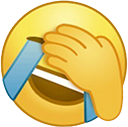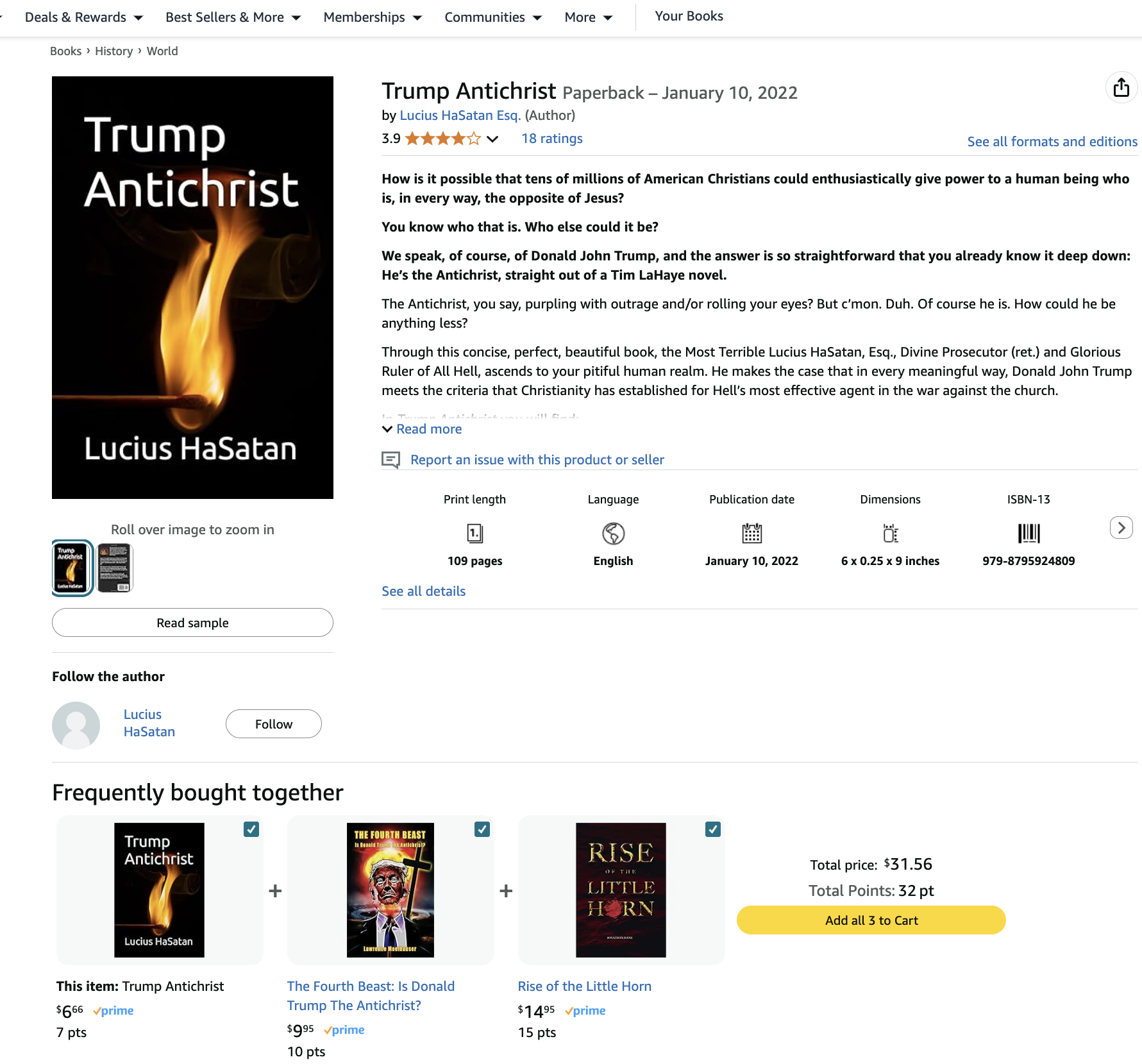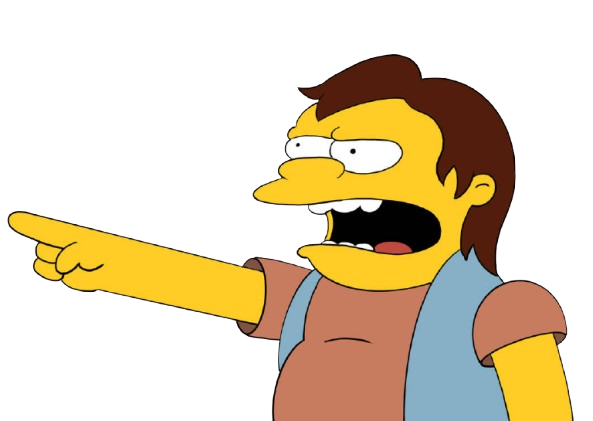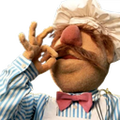Recently I've been reading a lot and I came across a YouTube video recommending that I read the book How to Read a Book by Mortimer J Adler and Charles Van Doren. It was first published in 1940 and was written by two white guys so it contains some antiquated language and worldviews (if you do read the whole book, cw for child abuse and misogyny), but overall I found it really valuable and I'm hoping it will help me to better understand the theory I read in the future.
With that out of the way, behold my notes on the book. Point out where I'm wrong.
Levels of Reading
The authors distinguish four levels of reading: elementary, inspectional, analytical, and syntopical. The book primarily deals with analytical reading, though inspectional reading is important because it informs analytical reading, and syntopical reading is an extension of the process of analytical reading to more than one book about a particular topic. I'm not going to touch on elementary reading here because if you can read this post, you've already mastered it.
Inspectional Reading
- The art of skimming systematically
- Aim is to examine the surface of the book and learn everything the surface alone can tell you
- Questions associated with inspectional reading (to be answered with structural note-making):
- What kind of book is it?
- What is the book about?
- What is the structure of the book? / what are its parts?
The four basic questions of active reading you should be trying to answer when you read a book (answered with conceptual note-making):
- What is the book about as a whole?
- What is being said in detail, and how?
- Is the book true, in whole or part?
- What of it?
Marking up the book (for both inspectional and analytical reading)
- Underline major points and circle key words/phrases
- Draw vertical lines at margin to emphasize statements already underlined or too long to underline
- Stars at margin to emphasize ~10 most important passages in the book
- Numbers in margin to indicate sequence of points in an argument
- Numbers of other pages in marin to indicate references or contradictions in book (use cf)
- Write in margin and at top/bottom of page to record questions a passage brings to mind
Rules for Analytical Reading
spoiler Rules for the first stage of analytical reading (structural: finding what the book is about)
- Know what kind of book you are reading, and as early as possible (ideally before you begin to read)
- Applies especially to non-fiction, expository works
- State the unity of the whole book in a few sentences at most
- Say what the book is about as briefly as possible
- It’s impossible to follow this rule without following rule 3
- Set forth the major parts of the book and show how they’re organized into a whole, by being ordered to one another and to the unity of the whole
- Sometimes this is to be found in the author’s preface, especially for expository books; however, don’t be afraid to disagree with the author here
- The third rule involves more than just enumerating the parts; it means outlining them, treating them as if they are subordinate wholes, each with its own unity and complexity
- The structure you outline need not follow the apparent structure of the book as indicated by its chapters – make your own outline
- Find out what the author’s problems were
- The author of a book starts with a question or set of questions, the answers to which the book ostensibly contains
:::
Rules for the second stage of analytical reading (interpretative: finding what a book says)
- Find the important words and through them come to terms with the author
- Think of terms as a skilled use of words for the sake of communicating knowledge
- One word can be the vehicle for many terms, and one term can be expressed by many words
- The words that trouble you are likely the very ones the author is using specially, i.e., as terms
- Be on the lookout for typographical devices that indicate an author is using words in a non-standard way; same for if the author argues with other writers about how to use a particular word
- Distinguish between an author’s vocabulary (i.e., the words being used in a technical way or a way particular to this author or work) and his terminology (i.e., the meanings the words in the author’s vocabulary are meant to evoke); try to determine whether the word has one or many meanings; if it has many, try to see how they’re related; finally, note the places where the word is used in one sense or another and see if context gives clues as to the reason for the shift in meaning
- Mark the most important sentences in a book and discover the propositions they contain
- Complicated sentences usually express more than one proposition. Also, you don’t really understand a proposition until you can successfully reformulate it in your own words
- Locate or construct the basic arguments (i.e., sequences of propositions) in the book by finding them in the connection of sentences (not paragraphs)
- Alternate formulation of rule 7: find if you can the paragraphs in a book that state its important arguments; if the arguments are not thus expressed, you must construct them by taking a sentence from this paragraph and another from that until you have gathered together the sequence of sentences that state the propositions that compose the argument
- The most important sentences are those that require an effort of interpretation because they are not perfectly intelligible at first glance
- If you find the conclusion of an argument first, look for the reasons; if you find the reasons first, see where they lead
- Find out what the author’s solutions are
- Determine which of the author’s problems he has solved and which he has not; as to the latter, decide which he knew he failed to solve
spoiler Rules for the third stage of analytical reading (critical: agreeing or disagreeing with a book; this must follow the other two in time, while the first two stages interpenetrate each other)
- Be able to say with reasonable certainty “I understand” before you say “I agree,” “I disagree,” or “I suspend judgment”
- When you disagree, do so reasonably, not disputatiously or contentiously
- I.e., focus on learning the truth, rather than winning the argument (disputatious)
- Conversation is not a battle to be won by disagreeing successfully
- Be as prepared to agree as to disagree, and regard disagreements as capable of being resolved – otherwise, disagreement is merely futile agitation
- Respect the difference between knowledge and mere personal opinion by giving reasons for any critical judgment you make
- When you agree or disagree, you must give reasons
- Knowledge consists in those opinions that can be defended, those for which there is evidence
- When you disagree with a book, try to formulate the disagreement in one of the following ways:
You are uninformed (i.e., the author is lacking some important piece of relevant knowledge)
You are misinformed (i.e., what the author asserts is not the case)
Your reasoning is not cogent (i.e., the author's argument doesn't follow logically, or two or more of the things they've said are incompatible)
Your analysis is incomplete (i.e., the author has not solved all the problems he started with, or has not made as good a use of his materials as possible, or he failed to make distinctions that are relevant to this undertaking) (this fourth point is not a basis for disagreement, but only marks the limitations of the author’s achievement)
:::
:::
Other notes on analytical reading
-
Theoretical books teach you that something is the case; practical books teach you how to do something you want to do or think you should do
-
Practical books frequently use words like “should,” “ought,” “good,” “bad,” “ends,” and “means”
-
Meanwhile, theoretical books use “is” rather than “ought;” they try to show that something is true, that these are the facts
-
The two processes of outlining and interpretation meet at the level of propositions and arguments
-
You work down to propositions and arguments by dividing the book into its parts
-
You work up to arguments by seeing how they are composed of propositions and, ultimately, terms
Three general maxims of the third stage of analytical reading:
- Complete the task of understanding the book before rushing to judgment
- Do not be disputatious or contentious (i.e., engage with the author in good faith, and don't bother reading works by authors who don't merit good-faith engagement)
- View the disagreement about matters of knowledge as generally solvable
Don’t conflate understanding an argument with agreement, or vice versa
Two conditions of disagreeing well:
- Acknowledge the emotions you bring to a dispute or that may arise during its course
Make your own assumptions explicit (I told you these guys were kkkrakkkers)
- An attempt at impartiality is a good antidote for the blindness inevitable in partisanship
Three types of extrinsic aids to reading:
Relevant experiences
- Two types: common experience (most relevant to fiction and philosophy) and special experience (most relevant to scientific works); both types are relevant to history
Other books
- Reading related books in relation to one another and in an order that renders the latter ones more intelligible is a basic maxim of extrinsic reading. This applies more to history and philosophy than to science and fiction
Commentaries and abstracts
- Commentaries tend to limit our understanding of a book, even if that understanding is correct as far as it goes. As a result, don’t read commentaries until after you’ve read the book (the opposite is true for the author’s preface and introduction)
Notes on reading specific types of books
Practical expository books
- Two main groups: presentations of rules (e.g., cookbooks, driver’s manuals) and books concerned with the principles that generate rules
- In reading rule books, the most important propositions are the rules; you can always recognize a rule because it recommends something as worth doing to gain a certain end
- In the other kind of practical books, however, the propositions will look exactly like those in a theoretical book. Read this type of practical books in such a way as to see the rules that are not expressed but that can be derived from the principles and figure out how the rules can be applied in practice
- Two main questions to ask of any practical book: what are the author’s objectives, and what means does he propose for achieving them?
- For practical books, adapt rule 4 to state: find out what the author wants you to do. Similarly, adapt rule 8 to state: find out how the author proposes that you do this
Theoretical books
- In judging a theoretical book, observe the identity of or discrepancy between your own assumptions or basic principles and the author’s
I'm skipping over their takes on reading fiction (what they call imaginative literature) bc it's not relevant to Reading Theory
Reading history
- The essence of history is narration
- Recognize which way the historian you’re reading is operating: either he finds a general pattern in events (or imposes one on them), or he abjures any such patterns and insists he is merely reporting the real regents that occurred
- The first rule of reading history: it is necessary to read more than one account of the history of an event or period if we want to understand it
- The second rule: read a history not only to learn what really happened at a particular time and place in the past, but also to learn the way people act in all times and places, especially now
- Ask a historical book all the same questions we ask of any expository book
- Two forms of criticism of history: The work lacks verisimilitude; the historian has misused his sources
They group reading about current events in with reading history and outline the following questions to ask when reading current events:
- What does the author want to prove?
- Whom does he want to convince?
- What special knowledge does he assume?
- What special language does he use?
- Does he really know what he’s talking about?
- Have Nima Shirazi and Adam Johnson explicitly dunked on the author at any point in the past?
Reading philosophy
Two types of philosophy: Dealing with questions of being and becoming (theoretical or speculative philosophy) and dealing with questions of good and evil (normative philosophy)
Five styles of philosophical exposition:
-
Dialogue (ancient Greeks)
-
Treatise or essay (Kant)
-
Meeting of objections (Thomas Aquinas)
-
Systematization of philosophy (Descartes, Spinoza)
-
Aphoristic (modern philosophers, Nietzsche)
-
Most important thing to discover in reading any work of philosophy is the question or questions it tries to answer
-
The major effort of the reader of philosophy should be directed toward the terms and the initial propositions of the work
Steps for analytical reading (this is the best part)
- Determine what kind of book you’re reading
- Options: fiction and non-fiction
- Sub-options within fiction: novel, play, and lyric poetry
- Sub-options within non-fiction: practical and theoretical
- Structural reading (rules 1-4): Inspect, or skim systematically through, the book, and answer the following questions by making use of structural note-making:
- What kind of book is it?
- What is the book about?
- What is the structure of the book and what are its parts?
- Interpretative reading (rules 5-8): Determining what is being said in the book and how
- Come to terms with the author
- Grasp the author’s leading propositions by dealing with his most important sentences
- Know the author’s arguments, by finding them (or constructing them out of) sequences of sentences
- Determine which of his problems he’s solved and not solved
- Critical reading (rules 9-11): agreeing or disagreeing, and providing supporting arguments
- Don’t criticize the book until you’re certain you’ve understood it
- If you disagree with a book, formulate your disagreement in one of the following ways: You are uninformed; you are misinformed; your reasoning is not cogent; your analysis is incomplete
Syntopical reading
-
The paradox of syntopical reading is that the identification of the subject matter of a book can only following reading, not precede it
-
Once you have amassed a bibliography on a subject, you should subject all books on the list to an inspectional reading before reading any of them analytically
-
Five steps of syntopical reading:
- Find the relevant passages in each book
- Just because a book contains some passages that are relevant to your subject of inquiry doesn’t mean the entire book will be, so don’t waste time reading passages irrelevant to you
- Find out how the book can be useful to you, even if it is in a way far from the author’s own purpose in writing it
- Bring the authors to terms
- Because you’re reading multiple books on the same topic, you have to develop your own terminology about it and force authors to use this language of yours, rather than adopting the author’s language as you do when reading one book analytically
- Accept the fact that coincidence of terminology between us and any of the authors on our list is merely accidental
- Get the questions clear
- Frame a set of questions that shed light on your problem and to which each of the authors in your list gives answers
- Define the issues
- A number of issues revolving around a closely connected set of questions may be termed the “controversy” around that aspect of the subject; this controversy may be very complicated and it’s the task of the syntopical reader to sort it out and arrange it in an orderly and perspicuous fashion, even if no single author has managed to do that
- Analyze the discussion
-
Ask and answer the questions in a particular order and be able to defend that order; show how the questions are answered differently and why; point to the texts in the books that support our classifications of answers
-
This is where you ask of your bibliography the following questions: Is it true, and what of it?
-
Syntopical reading tries to achieve the special quality of dialectical objectivity, i.e., looking at all sides of the issue
-
This is best achieved by constantly referring back to the actual text of his authors and re-reading the relevant passages
-
In so doing, make a deliberate effort to balance question against question, to forgo any comment that might be prejudicial, and check any tendency toward overemphasis or underemphasis
spoiler Steps to take in syntopical reading
- Create a tentative bibliography of your subject with recourse to library catalogs, advisors and bibliographies in books
- Inspect all books on the tentative bibliography and determine which are germane to the subject; in so doing, acquire a clearer idea of the subject. This is not chronologically distinct from step one
- Inspect the books already identified as relevant to the subject to find the most relevant passages
- Bring the authors to terms by constructing a neutral terminology of the subject through which all the authors can be interpreted
- Establish a set of neutral propositions for all the authors by framing a set of questions to which most or all of them can be interpreted as giving answers
- Define the issues, major and minor, by ranging the opposing answers of authors to the various questions on one side of an issue or another; in other words, figure out which are the main questions and which camps there are with respect to each question
- Analyze the discussion by ordering the questions and issues in such a way as to throw the most possible light on the subject
:::
Death to America





im assuming they were made in DMs. im not gonna dig into this and go looking for receipts, the fact that multiple people separately told me the same thing is proof enough for me. tbh it's been good for me to have a reason to get away from this site, the level of needing to touch grass in this community is unhealthy
Death to America